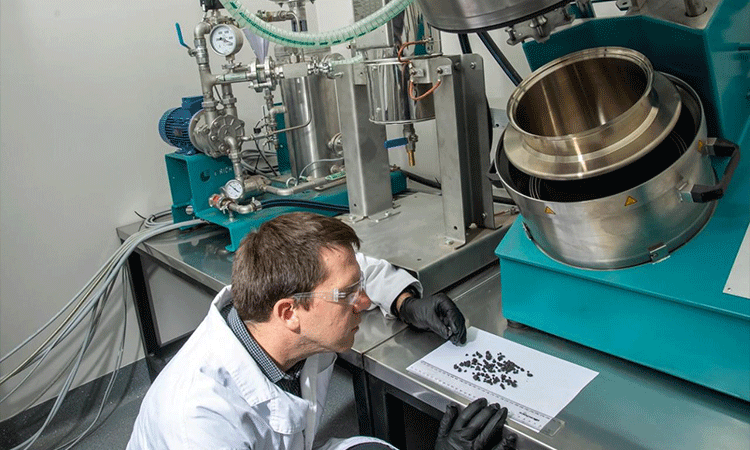
University of Southern Queensland senior research fellow Dr Stephen Tait using the lab-scale granulator. Photo: UniSQ
A FIVE-YEAR research project into the production and benefits of biofertilisers has culminated in the commissioning of an Australian-first granulator used to value add animal waste.
The University of Southern Queensland (UniSQ) has been leading this work, and began with trialling a raft of strategies to turn nutrient-rich animal waste into a bio-solution.
The team also conducted research into the agronomic benefits of biofertilisers.
UniSQ Centre of Agricultural Engineering director Bernadette McCabe said the new lab-scale granulator has enabled the research to expand into the production of organomineral fertilisers or OMF granule.
“The granulator is a first of its kind in Australia and will enable the production of biofertilisers using various organic waste materials together with mineral fertilisers,” Professor McCabe said.
She said OMF granules will have similar characteristics in terms of to manufactured mineral fertilisersin terms of particle density, strength and diameter, size distribution, and aerodynamic properties.
“This is an important consideration in the design of the final product to enable field spreading with standard fertiliser-spreading or pneumatic equipment.”
Possible commercialisation
The research team will work with industry to develop the final product, which will have a formulation suitable to meet nutritional requirements for crops and soil.
Professor McCabe said Australian farmers were looking for biofertiliser solutions to save on growing costs, improve the quality of crops and take care of the environment.
She said this research was about offering real solutions to a global problem.
“Farmers are facing increasing input costs with the rapid rise of fuel and fertiliser prices.
“A significant influence on global fertiliser prices is the price of fossil fuels, particularly natural gas.
“Fossil fuels and air are the main input into nitrogen-fertiliser production, and changes in global prices will be reflected in nitrogen fertiliser prices over time.”
Professor McCabe said biofertilisers has potential to create environmental as well as economic benefits, since using organic waste to produce biofertilisers will reduce greenhouse gas emissions.
The project was funded by the Queensland Government’s Waste to Biofutures fund, the Fight Food Waste CRC and UniSQ.
Source: UniSQ



HAVE YOUR SAY